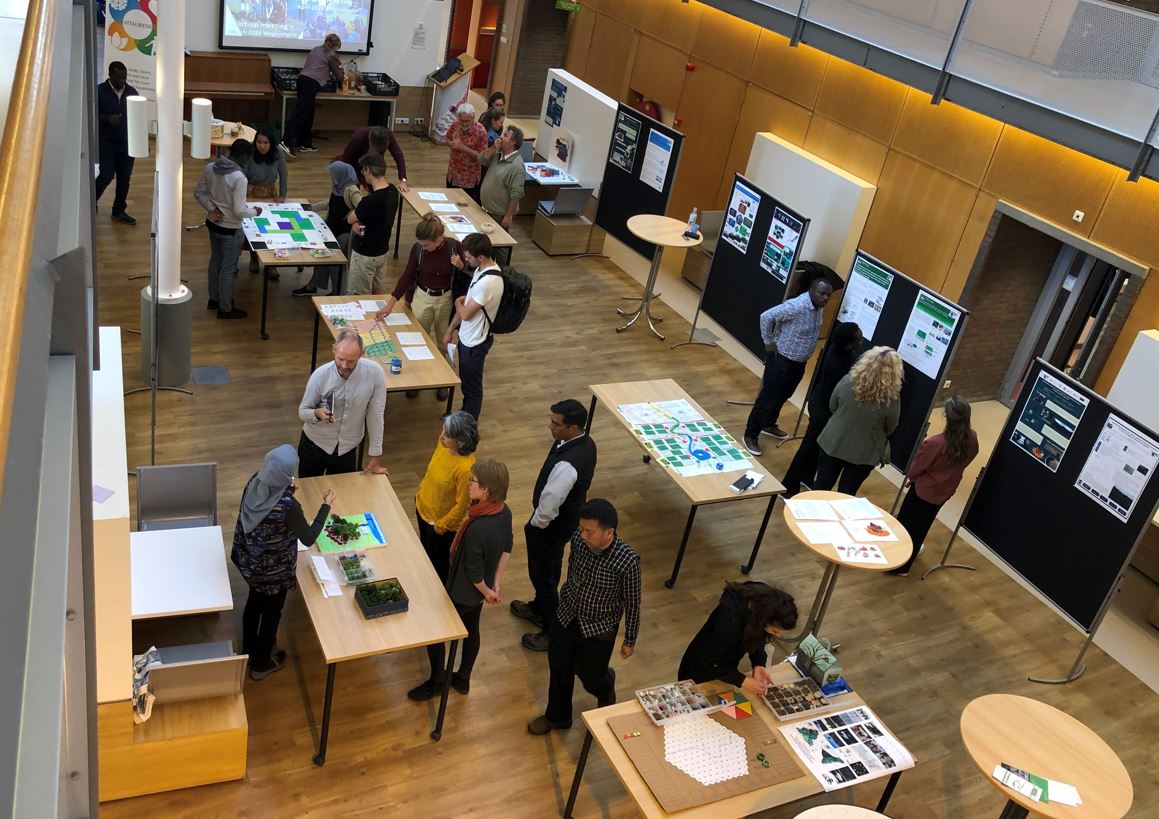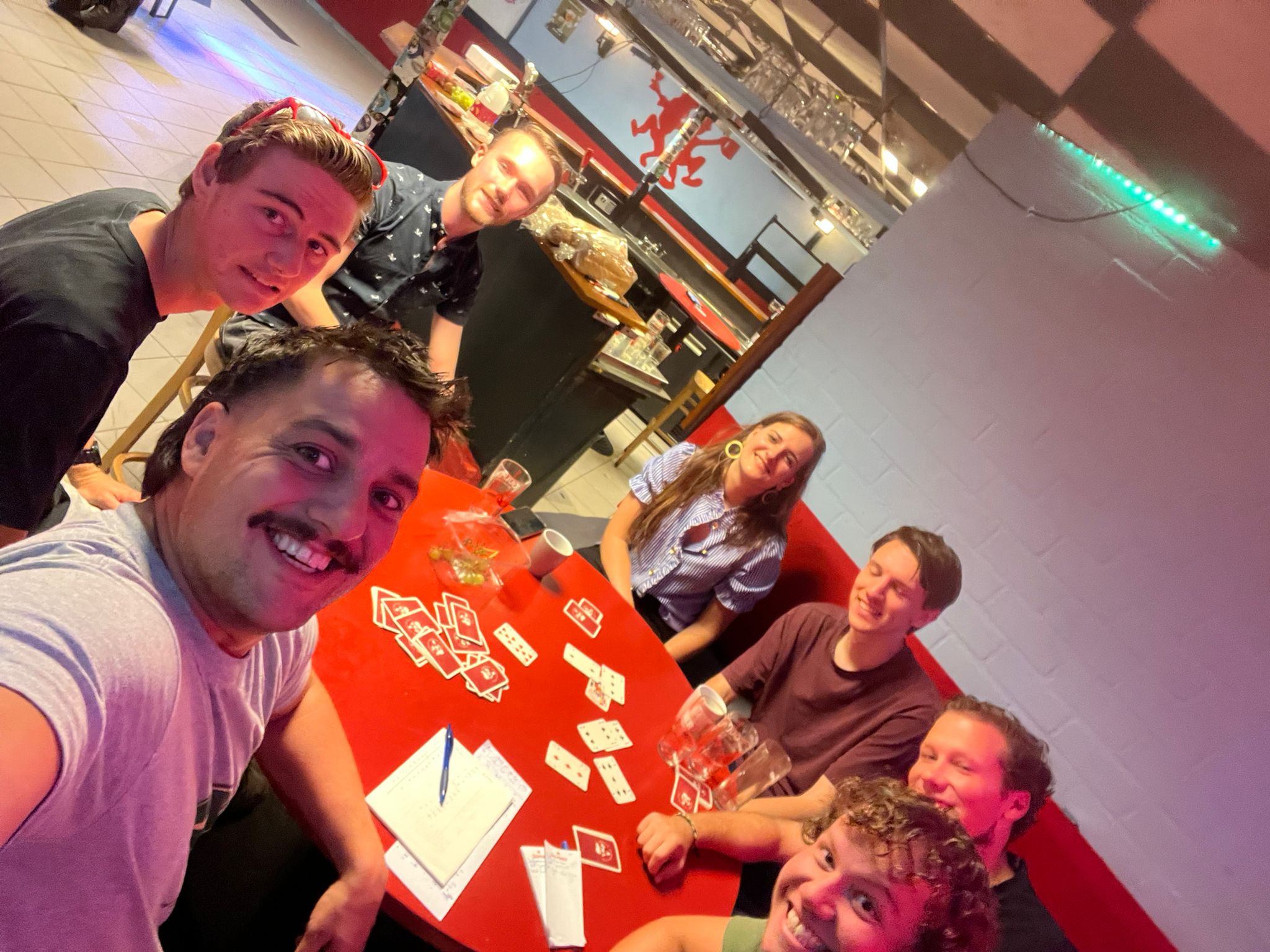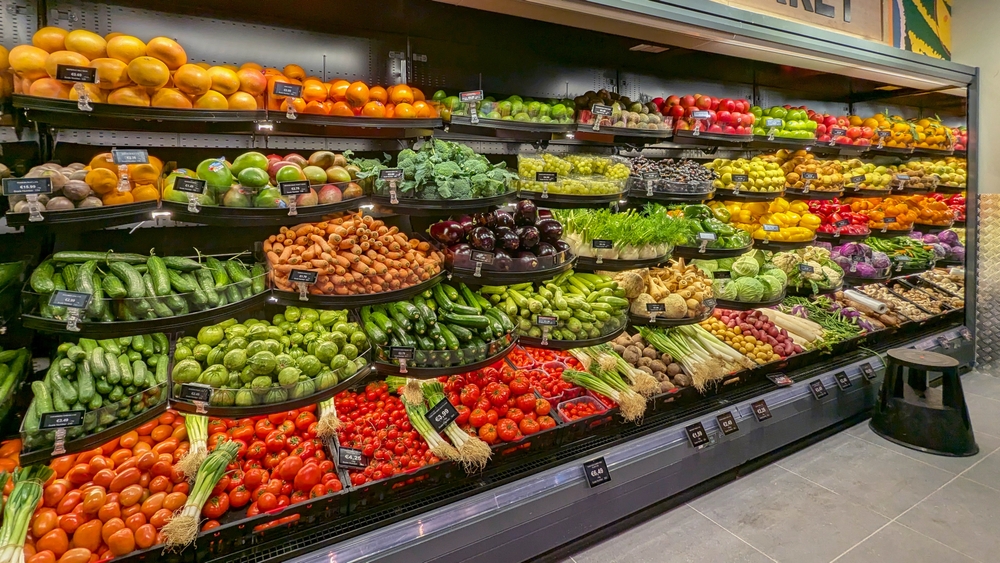In Gaia last Tuesday, 15 PhD students from 12 countries were poring over a number of homemade board games. The subject matter was serious: how farmers and policymakers in countries such as Indonesia, Uganda and Suriname handle water and deforestation.
Trees, water and people. The connection between these three is at the heart of the SESAM project (Scenario Evaluation for Sustainable Agro-forestry Management). The goal: to support farmers, companies and governments who live and work in tropical agro-forestry systems through these ‘serious games’ and to use the games as a scientific method.
Dysfunctional
‘The policy fields of water management, agriculture and forestry are very closely interconnected, whereas actual policy-making is often based on just one of the three disciplines,’ says researcher Erika Speelman, one of the initiators of the project. ‘That leads to dysfunctional policies. The voices of local stakeholders get lost in the plans drawn up for landscapes and the development of a green economy. In this project, we want to create games that stakeholders can use to get a better understanding of the dependencies between local contexts in terms of water management, forestry and farming. And at the same time, they can use the games to support farmers.’
After several rounds of the game, we see relationships emerging
Margaret Githinji, PhD student in the Information Technology Group
Exactly what this means became clear during the interim meeting in Gaia. The PhD students displayed their games: miniature worlds with trees, river landscapes and markers for the players. The games are intended for groups such as local farmers and civil servants. What happens, for example, when forest is cut down in order to grow potatoes? By making decisions during the game, players can see the effects straightaway. Potato farmers can cut down trees to boost production, but the felling causes flooding and erosion, so water managers say, ‘Farmer, leave your trees alone, and you’ll get compensation.’
Kilimo na Maji Game
One of the participants is Margaret Githinji from Kenya, a PhD student in the Information Technology Group. Her game is called the Kilimo na Maji Game and is part of her project investigating the decisions farmers make in their work. ‘I found inspiration in the socio-ecological system in the northwest, in the hills around Mount Kenya. The game is played by 10 players; six farmers and four reference groups: the government, the water regulatory body, local and export traders. All the farmers plant their preferred crop or crops during the game, and choose whether or not to irrigate, while reference groups advise farmers on crop options. At the end of the season, farmers harvest their crops and either store them for consumption or sell them. After several rounds of the game, we start to see emerging relationships. For example, do downstream farmers take action together when drought threatens them due to excessive water use upstream?’
The PhD students will be playing their games with local stakeholders in their countries in the near future. Next year they will come back to Wageningen to write their papers.

 PhD students displayed their games in Gaia; miniatures with trees, games with pawns and river landscapes.
PhD students displayed their games in Gaia; miniatures with trees, games with pawns and river landscapes. 

